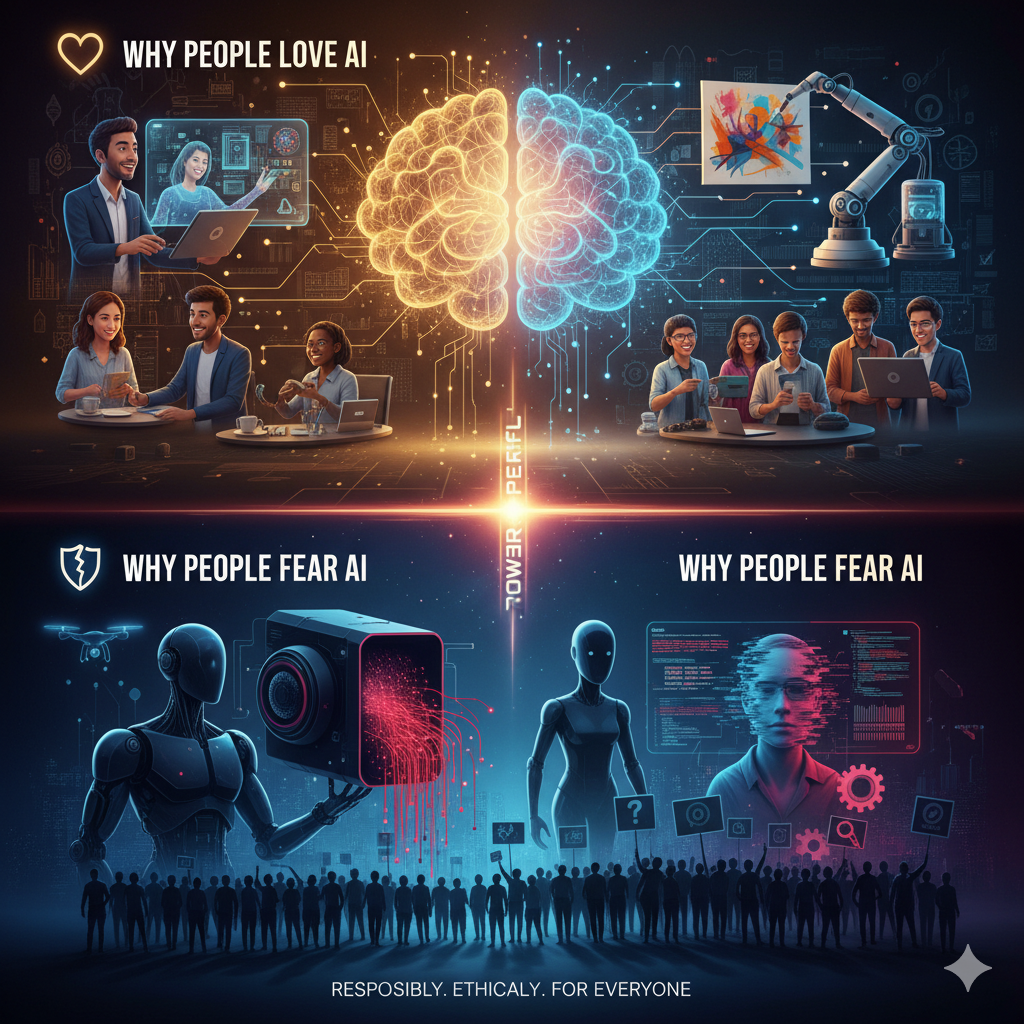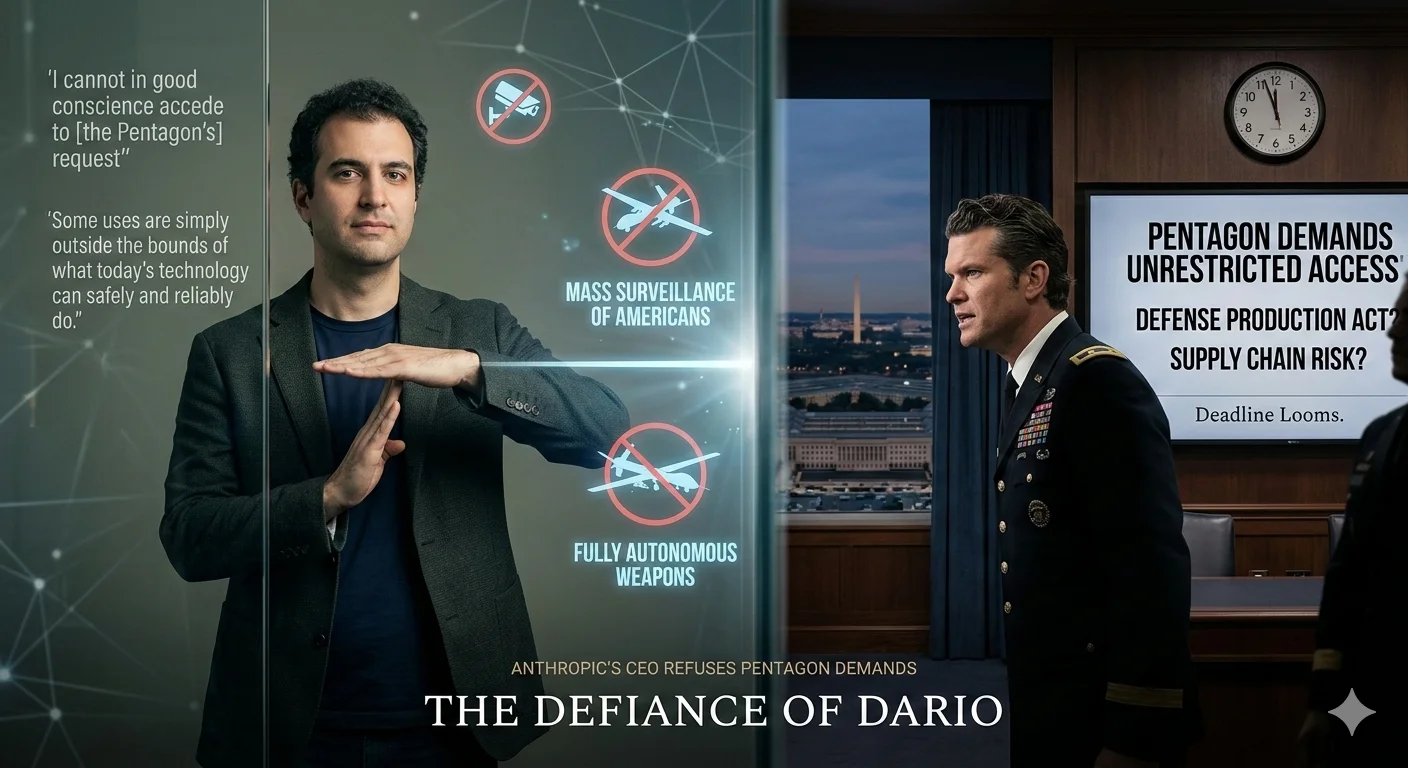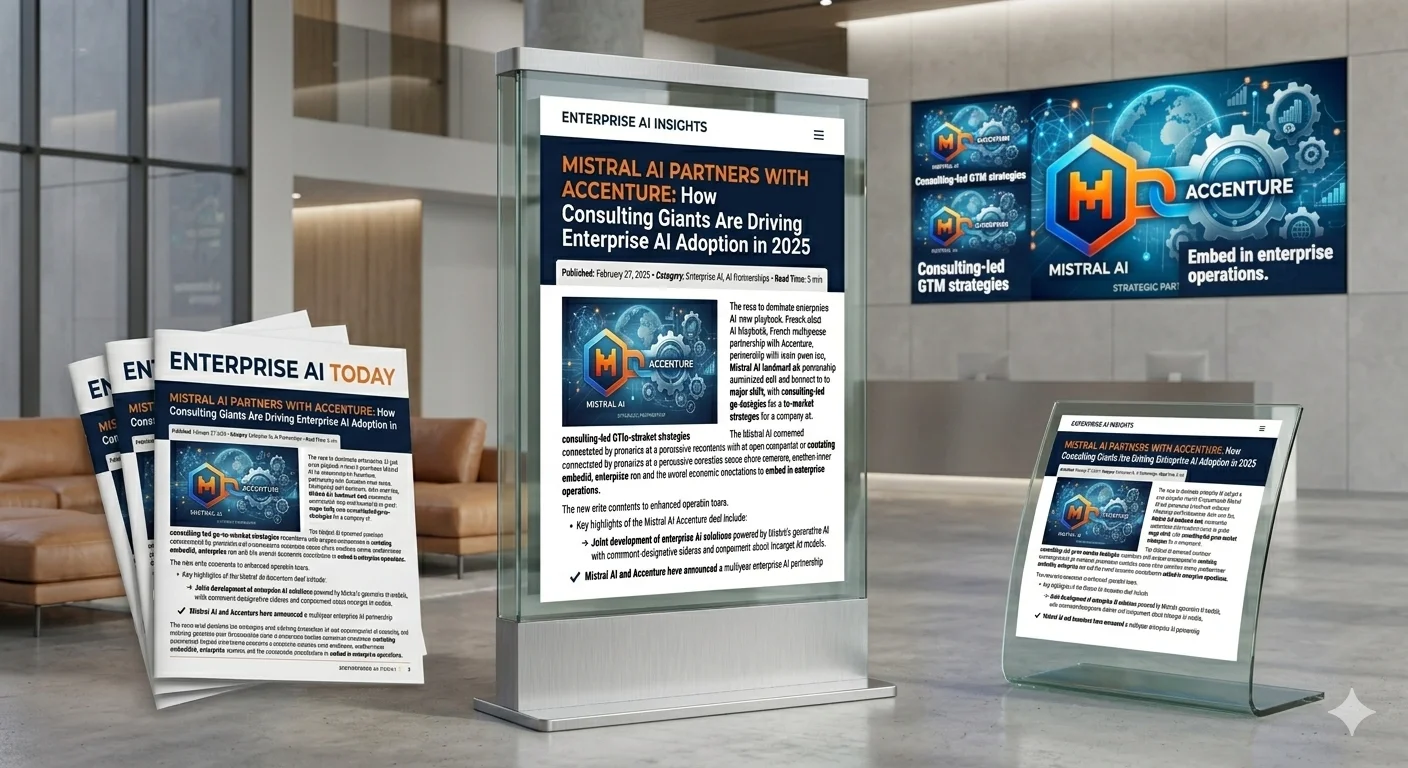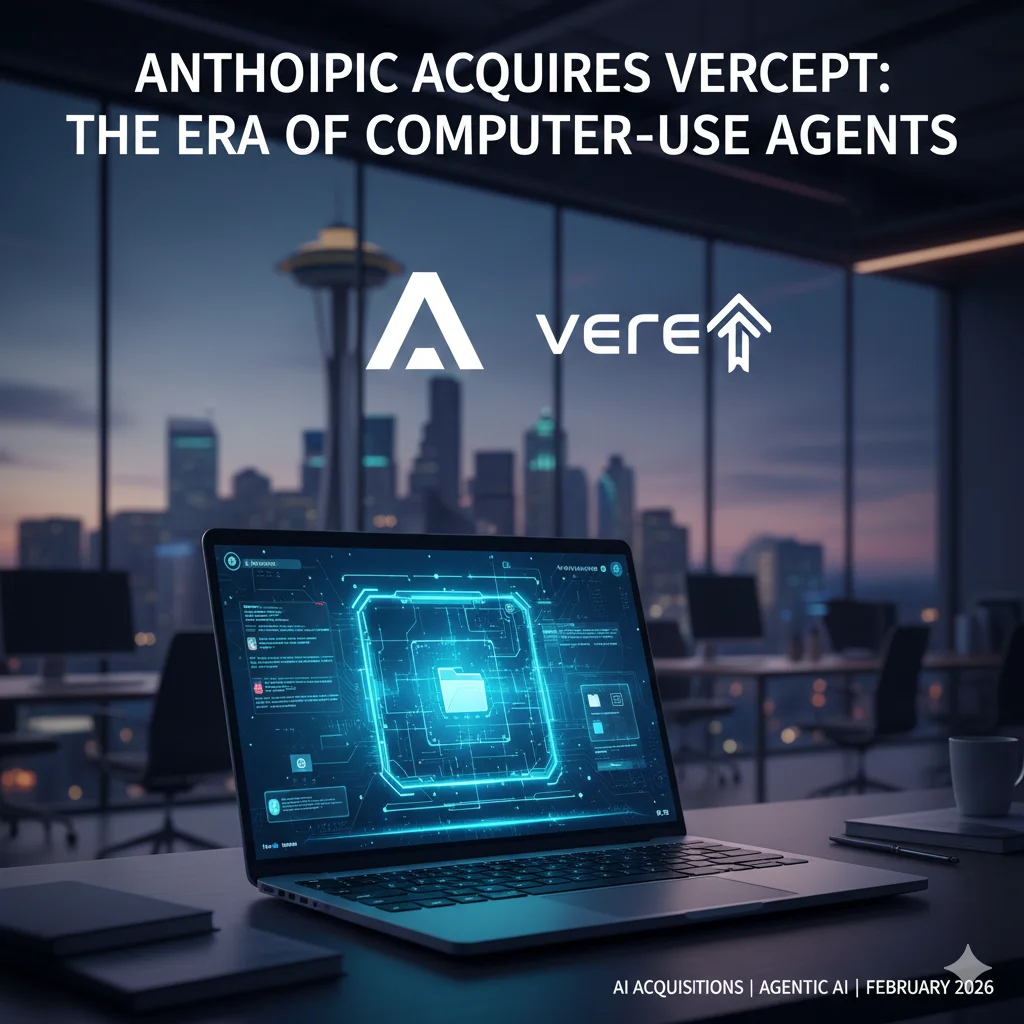Artificial Intelligence has become one of the most divisive technologies of our time. For some people, AI is a source of excitement, inspiration, and endless possibility. For others, it sparks discomfort, distrust, and even fear. But why do our reactions sit at such opposite ends of the spectrum?
It All Comes Down to How We Process Risk and Trust:
Researchers and psychologists say the love-or-hate divide around AI has a lot to do with individual differences in how our brains perceive risk, uncertainty, and trust. Some people are naturally more optimistic about new technology. They see AI as a tool that saves time, enhances creativity, and opens up new opportunities. These are the people who enjoy experimenting with AI: generating art, building apps, automating tasks, or exploring what new models can do. But others process the same technology as a potential threat — to jobs, privacy, security, or even humanity’s future. For them, AI feels unpredictable, opaque, and difficult to control. It triggers the same mental alarm bells that warn us about hidden risks.
Both reactions are valid. Both are human.
Why People Love AI:
- It makes life easier. AI can answer questions, automate boring tasks, improve productivity, and help people work smarter and faster.
- It boosts creativity. Writers, artists, YouTubers, and businesses use AI to brainstorm ideas, develop scripts, or enhance their content in ways that weren’t possible before.
- It feels magical. For many, AI represents the future — a glimpse of what’s possible when technology moves beyond our imagination.
Why People Fear or Distrust AI:
- It feels like a black box. Many AI systems make decisions in ways that even the developers can’t fully explain. That lack of transparency naturally creates mistrust.
- It brings job uncertainty. Automation is already reshaping industries. Some people fear that AI might replace work faster than society can adapt.
- It challenges human identity. When machines can think, write, draw, and speak, people begin questioning what it means to be human — and that discomfort can turn into fear.
The Truth? AI Isn’t Good or Bad — It’s Powerful:
Whether we love it or fear it, one thing is clear: AI is here, and it’s changing everything. The most important step now is learning how to use it responsibly, ethically, and in a way that benefits everyone. Some people trust technology naturally. Others need transparency and reassurance. Both perspectives matter in shaping the future of AI. Published in November-2025



